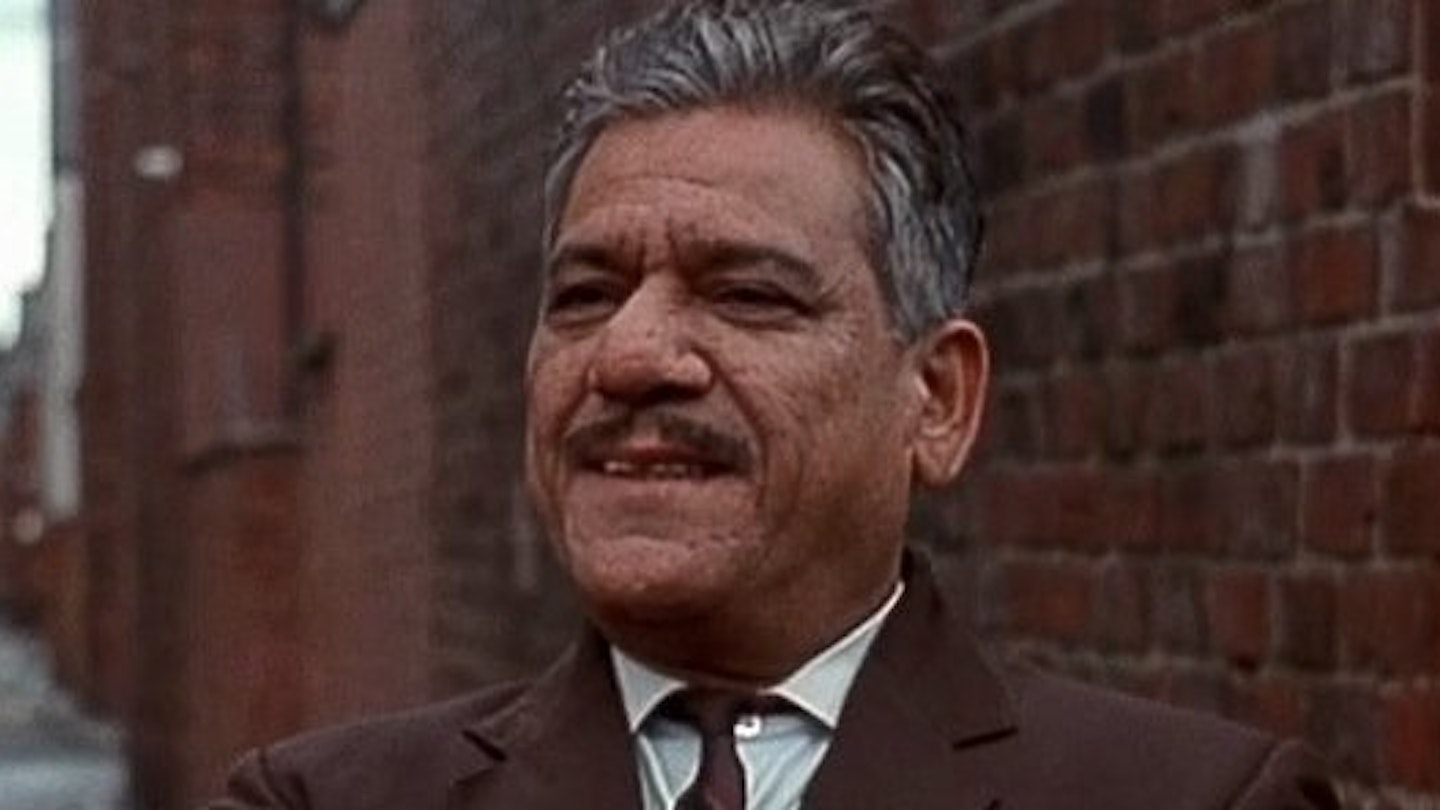A towering performance from Om Puri anchors this finely wrought adaptation of Ayub Khan Din's celebrated stage play, about a mixed race family wrestling with their cultural identity in 1971 Salford.
Puri plays chip shop owner George Khan, a proud Pakistani married to an English woman who is attempting to bring up his seven recalcitrant children as good Muslims. An overbearing patriarch, known as 'Ghengis' by his kids, he is devastated when his eldest son, Nazir (Ian Aspinall), flees from an arranged marriage.
Disowning him, Khan redoubles his efforts to maintain Pakistani traditions but, needless to say, his remaining offspring - with the exception of Maneer (Emil Marwa), a dedicated scholar of the Koran - are no keener than Nazir to adopt their father's values. As an arranged marriage looms large, for the first time, the family openly opposes him and George's frustrations finally erupt.
Puri is superb as the beleaguered George, conveying perfectly the contradictions of a man who wants the best for his children, but whose stubbornness and faith in his cultural identity blind him to exactly what that is. Bassett is similarly effective as his wife Ella, a Salford woman born and bred, who is torn between her love for her husband and her desire to see her children happy. Casting of the anarchic Khan clan is also perfect - the constant mix of bickering and affection are right on the money; you could almost believe they were a real family.
The film skilfully avoids most Asian-Britain cliches and by confining proceedings to the Khan family, it gives the exploration of culture-collision issues a tight focus. That said, you're never in any doubt about its theatrical origins, and whether it might have been more comfortable on the small screen is open to debate. Some quite brutal scenes of domestic violence don't sit well with the comic, often farcical, overtones and certain scenes lack momentum. But for the most part, it's a funny, astute and quietly moving piece of work.

